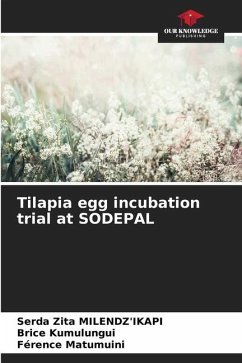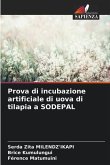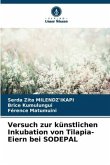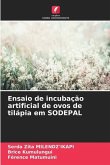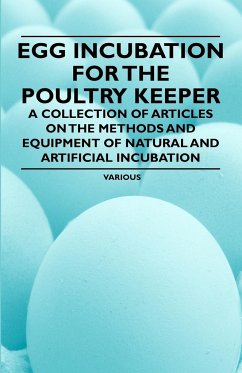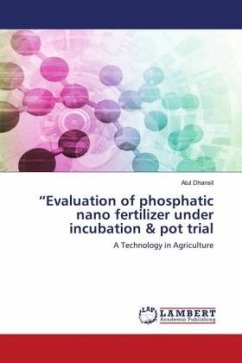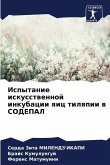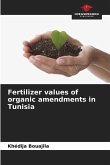Animal production in Gabon is low, particularly in the fish farming sector. Against this backdrop, a trial of larval production by artificial incubation of Oreochromis niloticus eggs was carried out in the Parc de la Lékédi. A total of 60 broodstock, including 15 males and 45 females, were collected in the wild and seeded into 3 x 5 m2 breeding tanks. Individual weights ranged from 150 to 350 g, with an average of 224 g. Total lengths ranged from 20 to 26 cm. These broodstock were fed a 3 mm floating pelleted complete feed, once a day each morning. After an adaptation period of 2 weeks, egg collection from the mouths of the females began and lasted 4 months. The eggs were incubated in 1.5 l plastic bottles with a conical shape towards the beak, after being disinfected in a 30% formaldehyde solution. The physico-chemical parameters of the water were not controlled throughout the trial. As a result, egg development was possible under these conditions, but the survival rate was lessthan 1%.
Bitte wählen Sie Ihr Anliegen aus.
Rechnungen
Retourenschein anfordern
Bestellstatus
Storno

